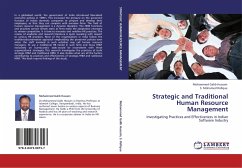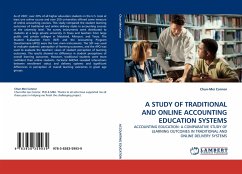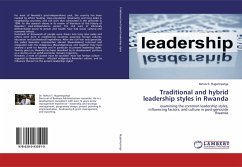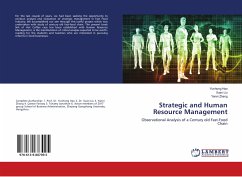In a globalised world, the government of India introduced liberalized economic policies in 1990 s. This increased the pressure on the personnel function of Indian domestic companies to prepare and develop their employees, so that they can compete with overseas firms. The field of human resource management is a dynamic discipline. The HRM functions and practices cannot remain static as firms make the adaptation necessary to remain competitive. It is time to innovate and redefine HR practices. The review of academic and research literature is quite revealing with respect to various HR practices. Most of the organizations in India follow the traditional/conservative approach emphasizing the personnel policies even when the staff involved in such activities may call human resource managers. To use a traditional HR model in such firms and focus HRM exclusively on bureaucratic tasks would be inconsistent with these organizational strategies. This research investigates the practices of both strategic HRM and traditional HRM. It also studies what are all the factors contributing to practices and effectiveness of strategic HRM and raditional HRM. This book reports findings of the study.
Bitte wählen Sie Ihr Anliegen aus.
Rechnungen
Retourenschein anfordern
Bestellstatus
Storno








